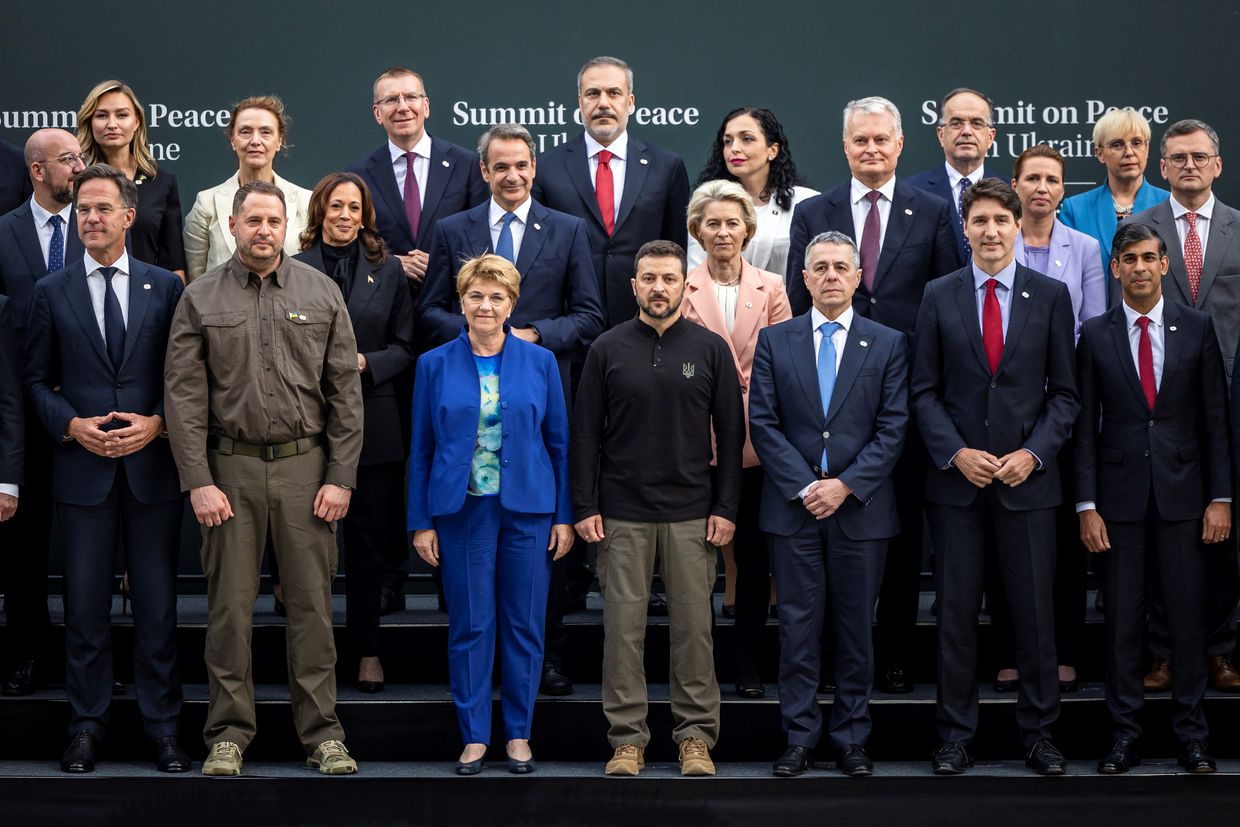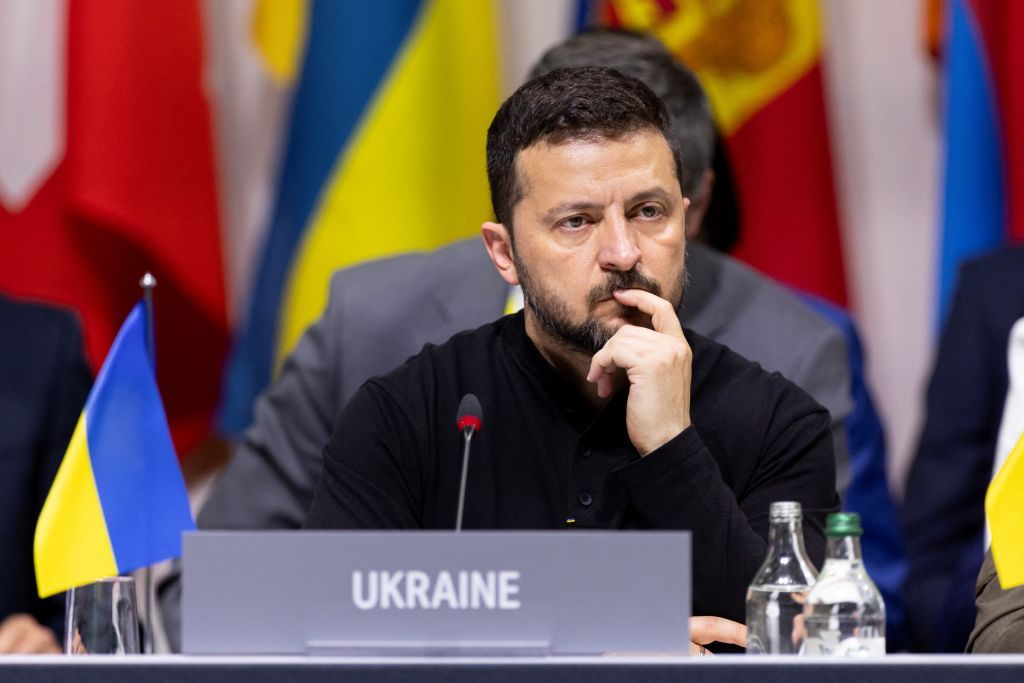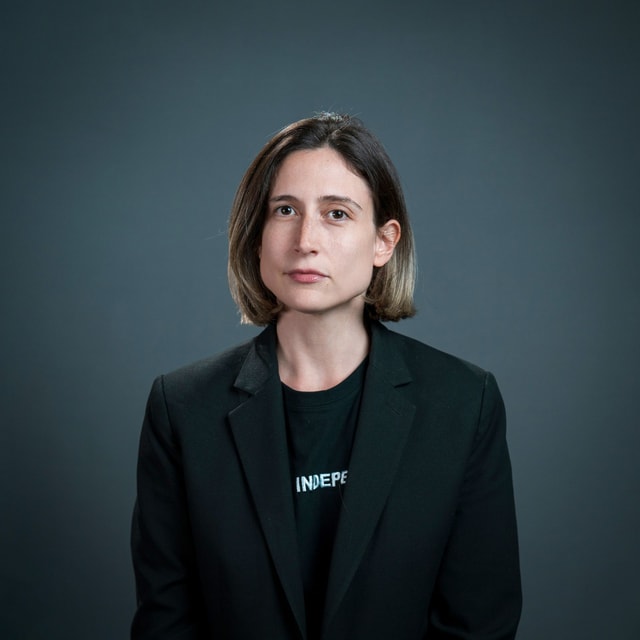Peace summit 'smart' way to combat Russian propaganda, Australian representative says

Australian Government Services Minister Bill Shorten attends the plenary session of the summit on peace in Ukraine, at the Burgenstock resort, near Lucerne, Switzerland, on June 15, 2024. (Urs Flueeler /POOL/AFP via Getty Images)
Australian Minister Bill Shorten, head of his country’s delegation at the peace summit in Switzerland, says he was surprised by the event.
Shorten has been in politics for eight years and was a trade union representative for 15 years before that. He's now the country's National Disability and Insurance Scheme and Government Services minister.
In his experience, politics has its high notes, and other times “it's just going through the motions.”
“There were more high notes here than I expected,” he told the Kyiv Independent on the sidelines of the summit, which brought together over 90 countries to discuss three major themes in Ukraine’s 10-point peace plan: nuclear safety, food security, and prisoner exchanges.
“I was impressed by the caliber of leadership present, particularly the Eastern European leadership. Sometimes people think politics doesn't have enough quality leaders, but there were some good leaders at this gathering.”
Delegations included representatives from all continents, with a notable exception of China, who turned down the invitation. Russia wasn’t invited, provoking discussions on what peace could be achieved without the belligerent and one of its major allies in attendance.
“I don't judge the success of it by whether or not the Russians sent us an email this afternoon and said they surrender and they're pulling the tanks out. That was never going to happen,” Shorten said.
Instead, the summit was a good show of global solidarity, according to Shorten, and tops off several weeks of Ukrainian diplomatic successes: a third recovery conference since the start of the full-scale invasion, and the Group of Seven (G7) summit, which resulted in the signing of two new security agreements with the U.S. and Japan.
The event was also a “smart” way to combat Russian propaganda that has sought to portray Ukraine and its Western allies as warmongers uninterested in peace.
“People get bombarded with a lot of disinformation, but Russia can’t say it didn’t happen, can’t say that every participant is uninterested in peace. They may say it, but it’s just not true.”
Bringing peace to Ukraine
Shorten has no illusions, however, that peace between Russia and Ukraine is imminent, saying there will be no real peace until the Russians are up for it.
But the summit was a start, according to the Australian minister.
“The world wants to see us working out the framework for peace, and letting people know what that framework is and what we support.”
That framework was largely laid out in the final communique published at the end of the summit, which calls for the safe operation of the Russian-occupied Zaporizhzhia Nuclear Power Plant under civilian Ukrainian control, the free civilian maritime passage in and out of the Black Sea, and the release of all prisoners of war.
Seventy-eight countries, including Ukraine, and four European institutions signed the final joint communique.
The text doesn’t go as far as calling for Russia’s withdrawal from the plant — likely a compromise, according to various participants at the summit who spoke to the Kyiv Independent.

Shorten doesn’t think that ensuring the safety of the plant is possible without the Russians moving out, but says he isn’t focused on the exact wording of the communique, saying their language is more “politics than Shakespeare.”
If the two sides “can reach a deal about the kids and stop them from being adopted out to Russian families, that would be a start; if they could reach a deal providing Ukrainian prisoners of war the same access to independent third parties that Russian prisoners of war get in Ukraine, that's a start,” he said.
“There's no trust, and there may never be any trust, but you've got to do something. If you can't get the whole deal, take it one at a time.”
One thorn in the side of the summit’s conclusion is a group of notable participants who didn’t join in on the final communique, including India, Armenia, Saudi Arabia, Libya, Indonesia, Bahrain, Colombia, South Africa, Thailand, Mexico, and the United Arab Emirates.
Their reticence has led some to wonder whether Ukraine was able to bring anyone else on its side outside of Europe’s border — a region by and large already firmly in Ukraine’s camp.
But Saudi Arabia’s absence, for example, from the document doesn’t diminish the role it can play in future negotiations, according to Shorten.
“Saudi Arabia plays a very important role regardless of whether they're on the communique or not. They're one of the level-headed influencers in the Middle East,” he said.
Saudi Arabia hosted an earlier summit on Ukraine’s peace formula in August 2023. It has also played an important role in negotiating prisoner exchanges with Russia, helping Ukraine to achieve a major exchange involving nearly 300 people in September 2022.
As for India, Shorten said not joining the communique is part of its “traditional ties with all sides,” and in his experience, India is a “very good actor” on the international stage.
And as an Australian, he says his country’s position is that the rise and development of India “is a good thing.”
Australia’s unique position
Shorten also feels that Australia has a unique role to play as an advocate for Ukraine in its own region, the Indo-Pacific.
“Australia is obviously a supporter of Western, Democratic liberal values, but we are not of Europe or North America, so we understand the perspective of other countries.”
This allows Australia to bring a non-European set of thinking to the debate, and to keep momentum behind the conversation on peace in Ukraine far beyond Europe’s borders, he believes.
“There are countries outside of the EU, who know us and like us and they'll be interested in what we have to think about this.”
Those countries include others in attendance at the summit, including Indonesia, with whom Australia has very close ties, as well as Singapore, New Zealand, Fiji, Pilau, and other Pacific nations in its near north like Japan and Korea.
“At international forums, Australians and Indonesians will seek each other out. We're closer than many other places,” he said.

For its part, Australia has contributed over a billion Australian dollars (around $660 million), military hardware, energy resources, and support for people with disabilities to Ukraine. Shorten says the country will continue to evaluate what it can meaningfully contribute and will stand alongside Ukraine “until we succeed.”
Even though Australia is a long way from Ukraine, Shorten said Australians “still know we’re connected.”
“Australia is linked to all the other nations by our shared humanity and we understand that if Russia was to succeed in Ukraine, and Ukraine to fail, that would be a bell tolling for all humanity.”
“We understand that Russia’s illegal criminal invasion of Ukraine threatens all nations so we don't need to be told for whom the Ukrainian bells toll. It’s for all of us.”











